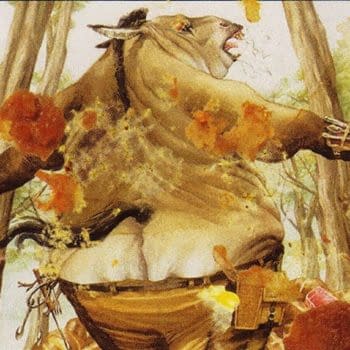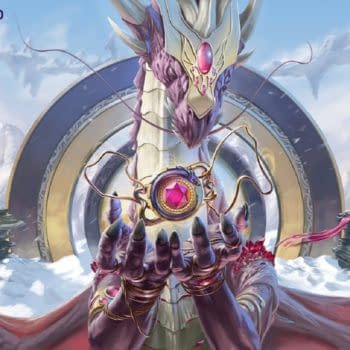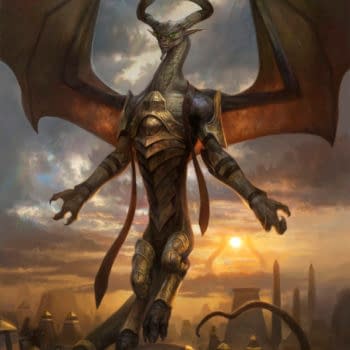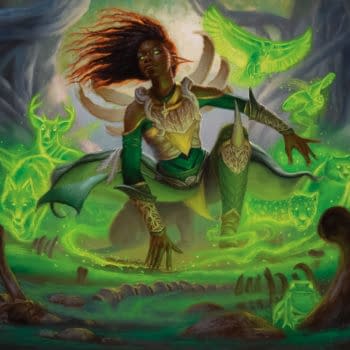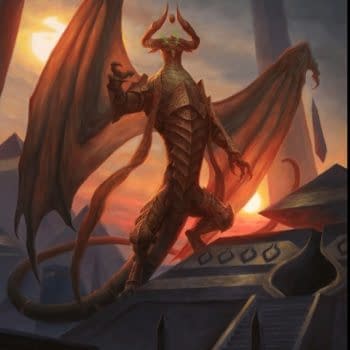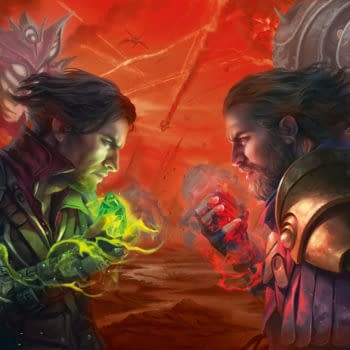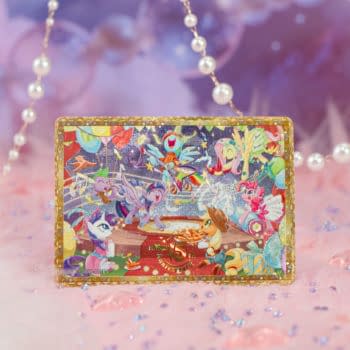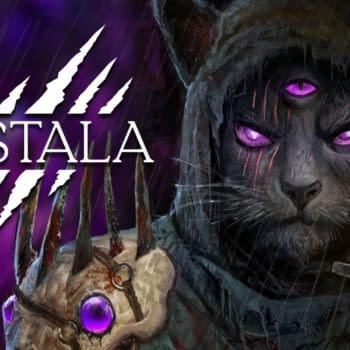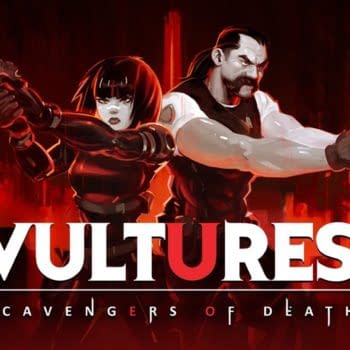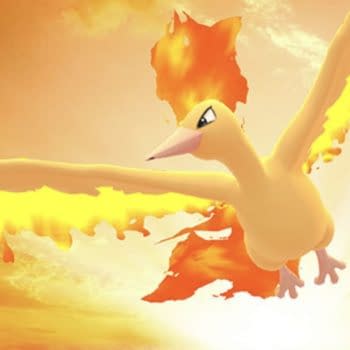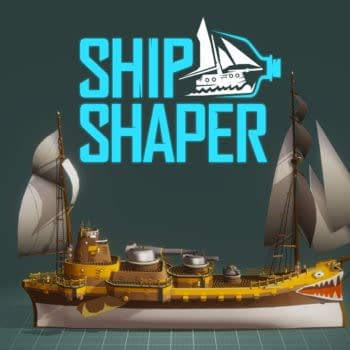Posted in: Board Games, Games, Studio71, Tabletop | Tagged: board games, Half Truth, Ken Jennings, Richard Garfield, Studio71, Tabletop
Half Truth – We Interview MTG Creator Richard Garfield
Greetings once again, Jeopardy fans, trivia gamers, and Magic: The Gathering players! In our latest article on Half Truth, the upcoming game by Studio71 and Nighthawk Gaming, we got the chance to interview Ken Jennings, perhaps best known for his extended period on the game show Jeopardy. Well, we also got the chance to interview another one of the designers of Half Truth – the creator of the card game Magic: The Gathering, Richard Garfield!
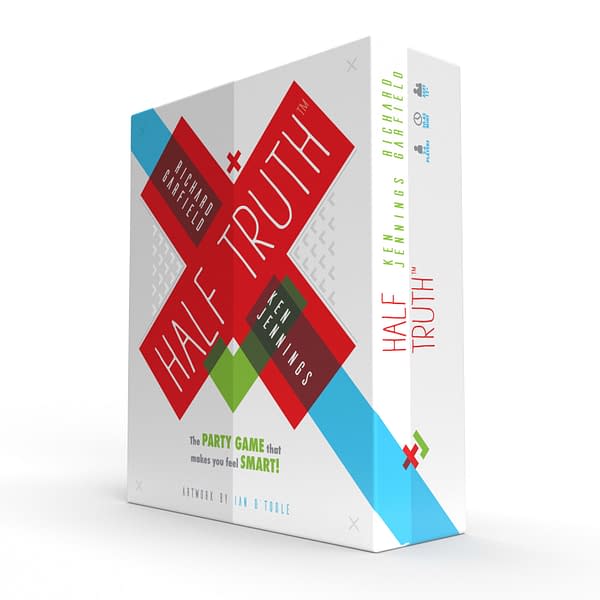
BC: Tell us how this idea came together. What inspired a Jennings/Garfield collaboration?
Garfield: Ten years ago I read Ken's excellent book Braniac, and his love of trivia was infectious. I realized that I had thought of trivia as being "either you know it or you don't", and he made me understand that a good trivia question is like a little game in itself. I also thought of trivia being specialized knowledge and some players were just not participants. But he focused on the fact that all players have special troves of knowledge that are fun to show off when the opportunity arises. That inspired me to make a game which highlighted these things.
For me, the hardest part was writing questions – and more accurately – learning to write good questions. The framework of all cards being multiple-choice, and having 3 true and 3 false answers was quite powerful and it took a while to figure out all the things that could be done with it. On the other hand – that was, in the end, the most fun as well. Coming up with really fun questions, and seeing those that Ken and others came up with was a blast.
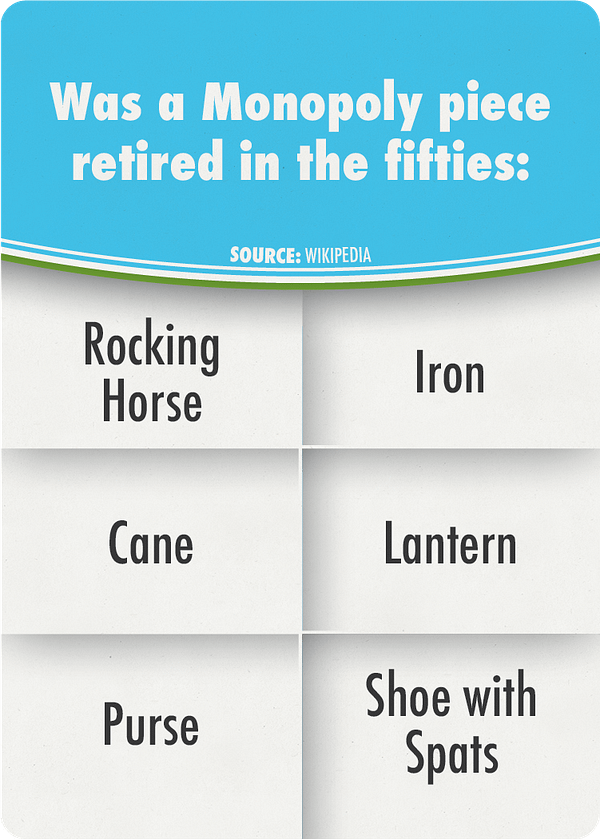
It was playtested with a wide variety of players with a wide range of enthusiasms about trivia. The framework of the game changed little over the years, but what the questions were changed quite a bit – particularly after Ken joined and began providing a more coherent style guide. One thing in particular I looked for were questions that players had 'no hooks' for. A sports question, for example, where a player recognizes no names isn't fun – the player really feels like they are just guessing – but if a single answer triggers some sort of memory – then they have something to work with.
Why did you go the Kickstarter route?
Years of publishers yawning and rolling their eyes when they heard 'trivia'. Once we went that way I found it was a nice way to connect with an enthusiastic and positive audience in a much more direct way than I am used to.
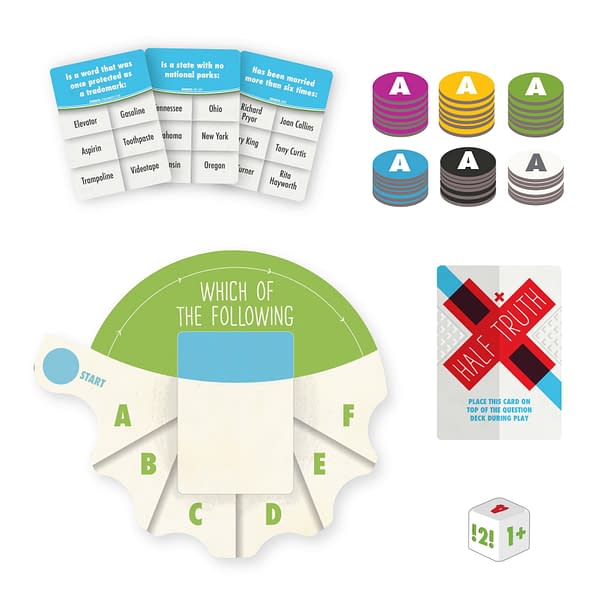
Do you have any favorite questions?
My favorite question was "Which are poisonous mushrooms?". Koni, my wife, included it in a set of about 20 cards she created for me to play the game – till that point I had been only watching people play since I was the only one making questions. I knew "Destroying Angel" was a mushroom – I figured "Blinding Angel" was an answer to trick me. I noticed a "Thallid" and thought that was peculiar – since it was a Magic card. I thought it could also be a mushroom though – we often took Magic card names from real things. Eventually I just went with Destroying Angel and didn't press my luck by going for any other answers. When the card was revealed I learned all three of the false answers were Magic cards. This added a dimension to play – because this technique allowed a player to leverage two types of trivia in order to analyze a question – in this case knowledge of mushrooms and knowledge of Magic cards.
The questions that weren't included were lost because they were hard to verify in general. For example, I had a question about which animals had average lifespans of more than 30 years – and the data I found was just too varied to feel comfortable making a question about.
What was it like working together on this game?
It was great, Ken made very helpful guidelines and was a gracious editor of questions. Also, anyone who has read any of Ken's books or listened to his podcasts will know he has a terrific sense of humor and playfulness – both of which are things I like to keep front and center in my design.
There is nothing planned beyond the opportunities that Half Truth may open up – like future expansions or a game show. I wouldn't be surprised if something came up though, we both have interests in a large range of things and inevitable overlaps could always lead to something unexpected.
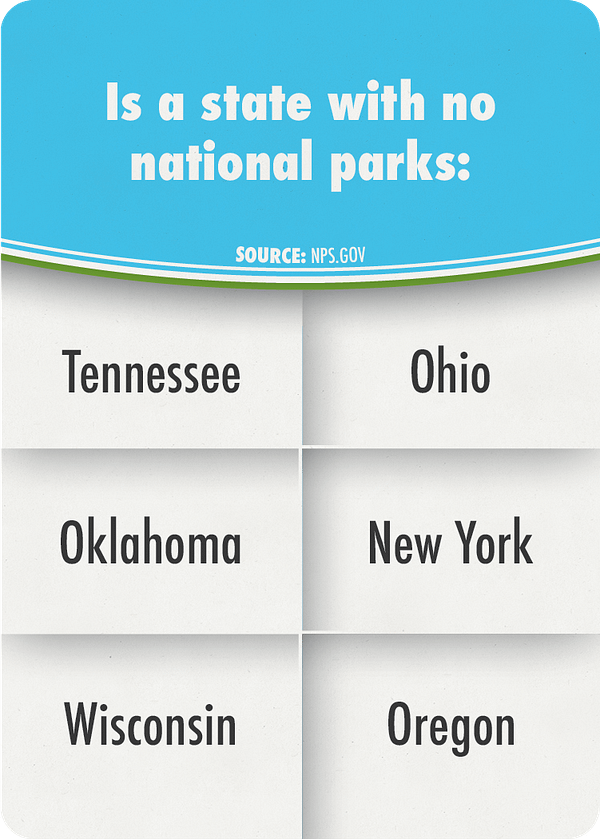
I am hoping for all of these things! For an expansion, I would be most interested in more questions, and a version that is for a younger audience. We are talking about a game show – the mechanics would work well for that I believe.
What are the two of you working on next?
I am always working on new games, and I am currently working on finding the best way to do that with appropriate social distancing. The projects that have me busy at the moment are Half Truth and Keyforge.
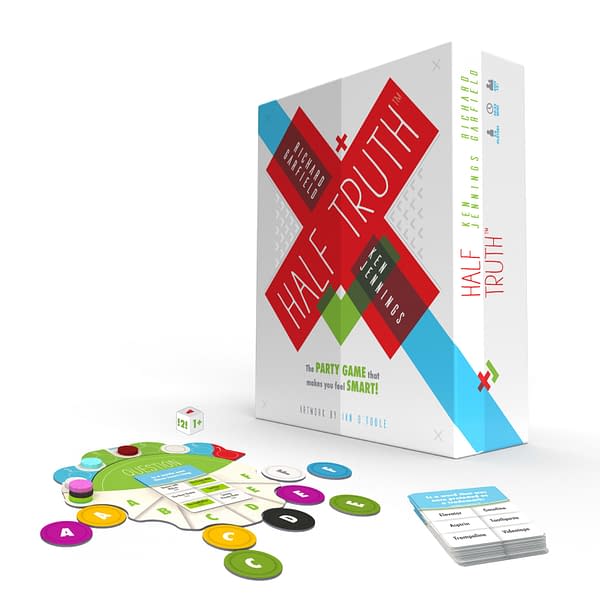
That concludes both interviews. Hopefully, these discussions gave a greater insight into the game and how it functions – stay tuned for an unboxing and explanation of the game in later days! In the meantime, what do you think about the game based on the information you have so far? Does it look like a fun time to have while socially-distanced? Let us know your opinion in the comments!


